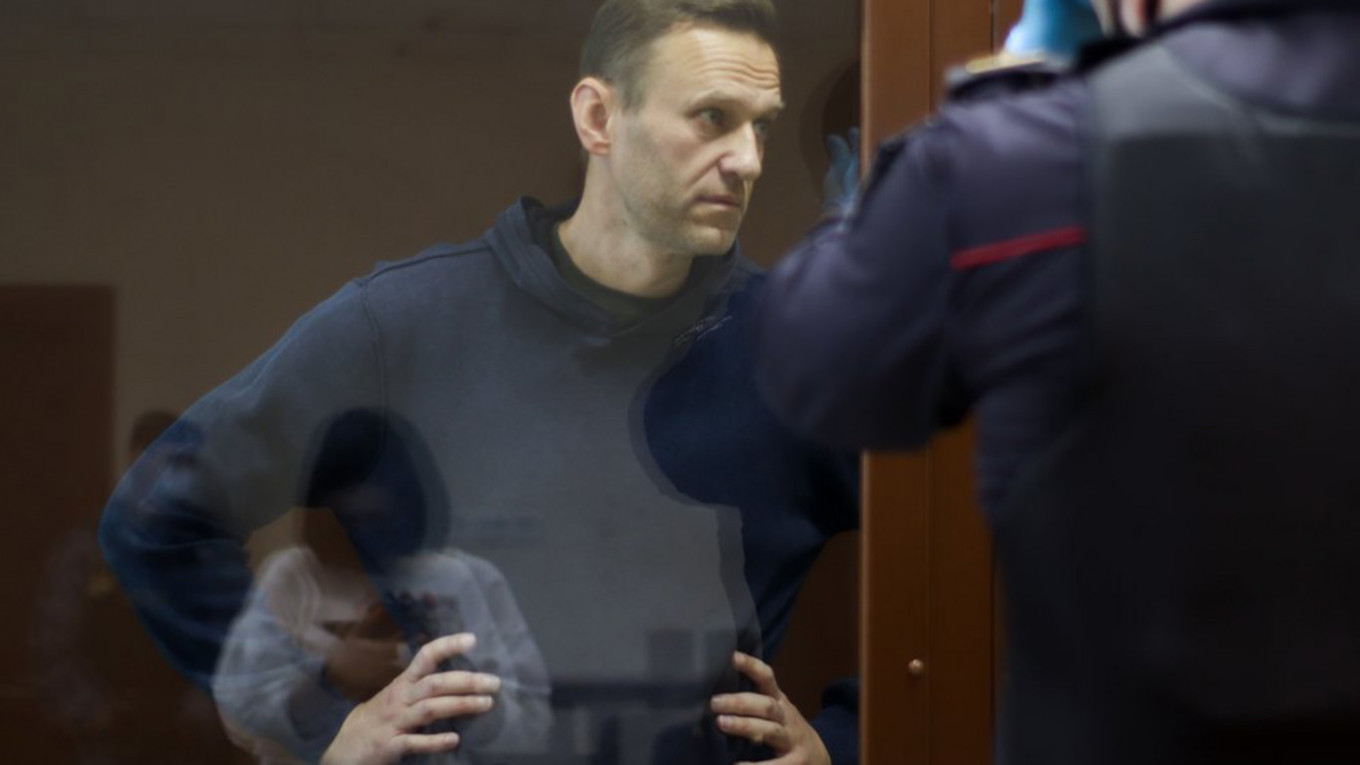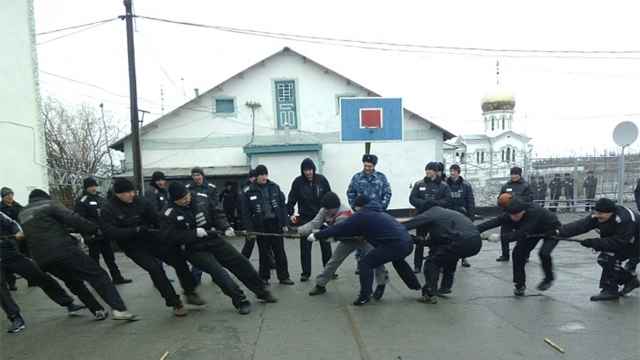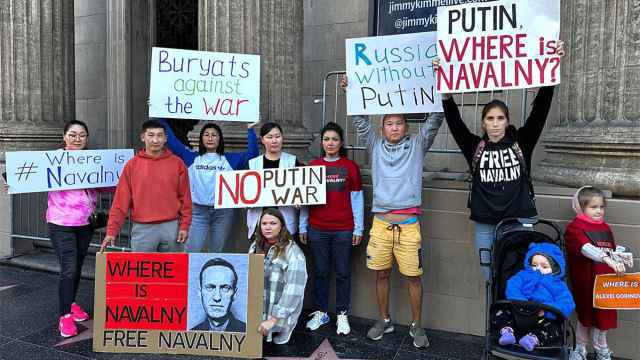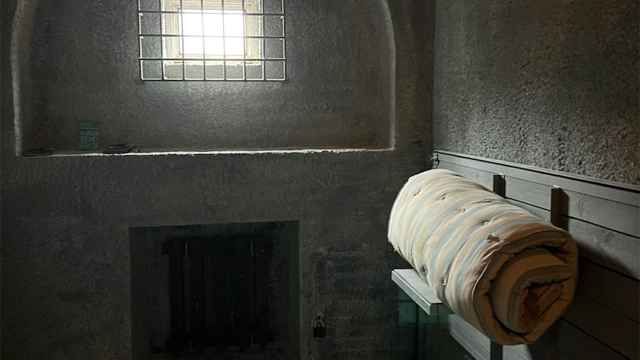Jailed Kremlin critic Alexei Navalny said Monday that he risks being sent to “torture-like” solitary confinement after he received several reprimands at a notoriously harsh penal colony.
Navalny, 44, is serving a sentence of two and a half years for violating parole in an old fraud case while recovering abroad from poisoning that he blames on the Kremlin.
In his latest social media update, Navalny said administrators at Penal Colony No. 2 east of Moscow handed him six reprimands over two weeks. The prison camp outside the Vladimir region town of Pokrov is infamous for psychological isolation and harsh conditions for inmates.
Navalny added that he faces 20 more reprimands for infractions that include “getting up 10 minutes before wake-up” and “wearing a T-shirt at a meeting with lawyers.” Another colony where Navalny had been held for a two-week coronavirus quarantine issued four reprimands in two weeks.
“You get two reprimands and can go to solitary confinement, which is an unpleasant thing with conditions that are close to torture,” Navalny wrote.
The reprimands mean that President Vladimir Putin’s most vocal domestic critic is no longer eligible for early parole, his lawyer said last week. Navalny’s lawyers have raised concerns over his health in recent days and he himself has shared fears of losing his leg due to prison authorities’ inaction.
The politician’s latest update from the penal colony he has called “a real concentration camp 100 kilometers from Moscow” was accompanied by his first prison photo.
Navalny’s imprisonment in January immediately after his return to Russia from Germany, where he was treated for poisoning with a military-grade nerve agent, sparked mass nationwide protests, outcry from rights groups and condemnation from the West.
A Message from The Moscow Times:
Dear readers,
We are facing unprecedented challenges. Russia's Prosecutor General's Office has designated The Moscow Times as an "undesirable" organization, criminalizing our work and putting our staff at risk of prosecution. This follows our earlier unjust labeling as a "foreign agent."
These actions are direct attempts to silence independent journalism in Russia. The authorities claim our work "discredits the decisions of the Russian leadership." We see things differently: we strive to provide accurate, unbiased reporting on Russia.
We, the journalists of The Moscow Times, refuse to be silenced. But to continue our work, we need your help.
Your support, no matter how small, makes a world of difference. If you can, please support us monthly starting from just $2. It's quick to set up, and every contribution makes a significant impact.
By supporting The Moscow Times, you're defending open, independent journalism in the face of repression. Thank you for standing with us.
Remind me later.






